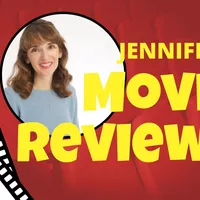The Hunger Games (2012-2015)
If I'm flipping through TV channels and I come across The Hunger Games (2012) or Catching Fire (2013), I usually stop and watch. These are movies I've seen many times, but I'll watch them again and again.
Are you familiar with this four-part film series? The book trilogy is a bit different, but most readers agree that the film version is amazing in its own way. I'd argue that the first two films are stronger than the last two, but the entire story is worth watching. Let's just say that I've watched the first two too many times to count, but I've only seen Mockingjay Part 1 (2014) and Mockingjay Part 2 (2015) a couple times each.
I admit that I was reluctant to watch The Hunger Games at first. When I heard that the basic plot revolved around a game in which children killed one another, I was turned off. But there was so much talk about the movie that I couldn't ignore it. Once you step into this futuristic world, you want to understand how it works. Why would twelve districts agree to sacrifice two children every year to appease a cruel central government? What happens when children are placed in an arena to fight to the death? From every game, only one child survives, but how does that survivor manage to live after such a horrific experience? These are the questions the audience seeks answers to.
I'm glad I gave in and watched the first movie. The story is compelling, and the acting is phenomenal, thanks to the top cast members, including Jennifer Lawrence (Katniss), Woody Harrelson (Haymitch), Liam Hemsworth (Gale), Josh Hutcherson (Peeta), Elizabeth Banks (Effie), and Donald Sutherland (President Snow). Smaller roles are also filled by talented actors, making many characters memorable, despite their more limited screen time.
Another element that makes The Hunger Games believable is the care and attention that went into the sets and costumes. The futuristic world of Panem comes alive on the screen. Whereas a book allows the reader to imagine the setting and the costumes, a film production must spend the money to create everything. The producers of The Hunger Games spent their money well.
What makes people like me watch this dystopian tale over and over? What draws us in? The story successfully combines horror, excitement, courage, friendship, and love in a way that we can relate to. We've seen killing, manipulation, and sacrifice in our own world. It's not very difficult to imagine the world of Panem, where people in the Capitol live a life of luxury and the rest of the population suffers under the totalitarian regime. When it's time to rebel, we're there on the side of the rebels, cheering them on. We like to fight for justice, even if it's not a guaranteed outcome. Thankfully, Hollywood gives us the ending we want and need.
PHRASAL VERBS
flip through (phrasal verb) casually search for something interesting
come across (phrasal verb) happen to see or find
revolve around (phrasal verb) make something the main focus or subject
be turned off (adjective based on a phrasal verb) If you're turned off by something, it loses its attraction.
give in (phrasal verb) agree although you didn't want to at first
draw someone in (phrasal verb) attract someone's interest and attention
KEY VOCABULARY
trilogy (countable noun) a three-part series
reluctant (adjective) not willing to do something
compelling (adjective) very interesting
futuristic (adjective) having to do with the future
dystopian (adjective) Dystopia is an imaginary world in which people are not happy and there isn't fairness. "Dystopian" is the adjective.
a life of luxury (noun phrase) a life full of comfort and wealth
totalitarian (adjective) A totalitarian government has complete control and power over everything.

